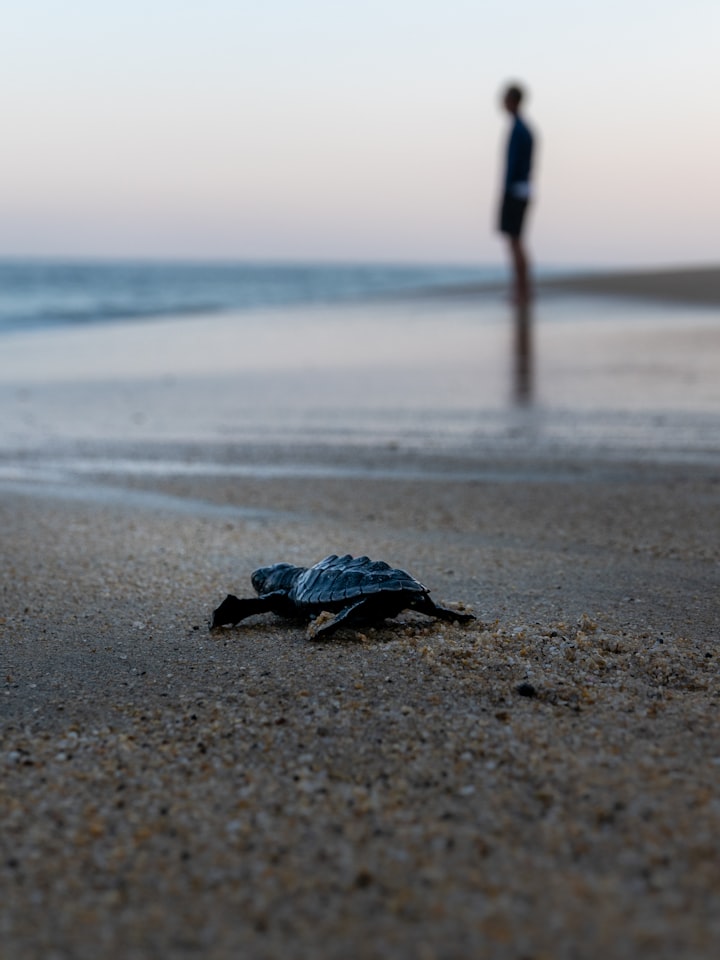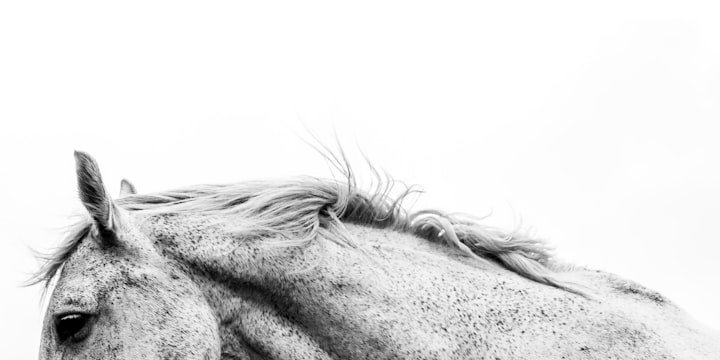The Mother
An entry for the Improbable Paradise Challenge

Isla Mujeres, Mexico
1517
The Conquistadors, drawn by the flames of the lighthouse, came upon the mandible of the island jutting out of the sea. The plague of Spaniards came ashore in two small boats looking for riches, and found the sandy gem populated by fishermen and their wives, farmers, and salt miners. They discovered the house of idols at the headland, in the lighthouse's shadow, sheltering the flame of The Mother. The Conquistadors knew nothing of Ixchel, the Mayan Goddess of fertility, so when they found her within the house of idols, tall clay likenesses arranged in tribute, they knew what to call this place. Isla Mujeres. The Island of Women. The Conquistadors continued south, not knowing what to do with this place, as they were accustomed to water and blood flowing freely, and here both surged and ebbed. Their sails bulged as they sailed away, Ixchel expelling them on the wind.
Yesterday
Only ruins remain of the original settlement at Punta Sur, but the Mother still overlooks this land. A statue of Ixchel, kneeling bare-breasted and offering a fish in her outstretched hands, sits atop the cliffs, the closest place on the island to the moon.
Today
I was alone. No, my companion, cold in my hand, with one bullet in it. The solution to everything put in front of me came at the end of a gun, so there was no questioning this. The day was just an amber ribbon above the ocean, a final image I hoped to burn into me with the gunpowder so I could carry it with me into whatever came next.
What would the obituary say, if there were someone left in my life to write it? He wasn’t so much born poor, but forged to fit into the machinery, a dutiful little cog. He was, as all cogs are, warped by the heat and friction of his sins, and cast aside to rust.
Little Ramon—Ray Ray, my mother called me—devoted pichón, young pigeon. To face the wrath of my mother was a fate worse than death, so I obeyed her.
Ramon, the invisible halcóne, falcon, for the cartel, a bird that grew crooked wings but returned to feed the nest. I needed to help my mother pay the bills, so I obeyed them.
Lieutenant Sergeant Ramon Dominguez, faithful depredador, predator, for the Mexican army, now at war with the cartel. The bomb that killed my mother propelled me into their ranks, so I obeyed them.
Ramon, husband and paloma, dove. I swore to honour and obey Gabriela, and to leave the shadows in my life behind me for good. What I could have been, if cancer had not stolen her away. Her last wish, for me to move on. This would be the only order I could not obey.
My finger wrapped around the trigger. A shrieking chaos of churning bodies and sand. A pair of coati fought over something, punctuated by high-pitched cries. A dozen feet towards the water from the melee was a low, hulking shape. A sea turtle, unmoving. Dead. Her trail showed she fought her way back to the ocean, struggling over the soft sand, but not far enough. The trail started where the coati now dug. Her nest. One of the coati came up with an egg in its mouth. The gunshot scattered the coati into the brush at the edge of the beach.
The gun pointed to the sky, empty, abandoning me here. I stabbed the air with the impotent gun, yelling a torrent of abuse at the turtle. In response, she opened her eyes and flailed her front fins. She still had life in her. Turkey vultures circled above.
I took the turtle by her shell and pushed, plowing her broad body through the sand, her fins working harder the closer we came to the water, and then we were in the surf together. I guided her along over the breakers until my feet left the bottom. She drew a deep breath and dove below the surface. I ducked underneath to watch her go. The silence, the weight of the water, the way the light wrapped around me. I would stay here. I left a trail of death behind me all the way into the ocean. If leading this mother out to sea was the last thing I did, a single mark on the other side of the ledger, that was the best I could hope for. I let out all my air in a stream of bubbles and waited for the blue haze to darken and the ocean to take me away. Aching for air, I shut my eyes and turned to the thoughts that would make me heavy and hold me there. But I wasn’t deep enough. There was still light. I opened my eyes and there was the turtle, receding into the gloom.
I broke the surface of the water and my lungs betrayed me, drinking deeply. The ocean crawled knocked me forward with contractions of waves. The vultures were circling. The surf lapped at my empty gun. In time, the tide would carry it away. The nest was in disarray, but there were no broken eggs. I scooped sand over top of them and when I finished, I collapsed, and the darkness I sought in the ocean found me.
My plate was empty, but I could smell more tamales being made. My mother cooked, smiling in the soft evening light.“I cannot make these fast enough,” she said. “My fingers are not as fast as your stomach!” She held out a fresh plate for me. A fish, slick with water, flopped back and forth. The plate was in the hands of Ixchel. My mother was gone, but they had the same eyes. She was divine. I reached out to touch her bare breasts, and she took my hand in hers. I looked up at her and she was now Gabriela. Ixchel was gone, but they had the same eyes. Gabriela placed my hand on her stomach. There was something there, hidden and secret. I slipped onto my knees, cupping her swollen belly, penitent. Her water broke, and it was in my hands, another fish, mouth popping open and shut, gills fluttering. Ixchel’s arms were outstretched, so I handed her the fish. The offering was not enough. She required more. She held my face close to hers, and in her eyes I saw the vultures descending to feast on the mother’s nest, their talons scuttling through the sand, little shards of eggshell dropping from their beaks.
I woke to heat, a wet snuffling on my face. A scraggly dog stood over me, trying to revive me with her breath. It worked.
“Get off,” I said.
She insisted, nuzzling into me, so I shooed her away. She lay down next to me, her nose in the sand, snuffling. I was lying on the nest.
“No!” I said, and the dog recoiled, offended. She didn’t go far, looking pitiful.
Ixchel, the Mother. She had come to me, to obey her. The tide had washed away my tracks from the morning, and I clung to the thought that maybe it was all a nightmare, and I would return to the casita to find Gabrielle there waiting for me. Maybe it was true. The world looked as it did before. Pelicans cruised through the barrel of waves, hunting, before the waves crashed into froth on shore. The sun sparkled in the windows of houses. The sand was warm under my feet. The world that had the audacity to keep spinning, after what I lost.
I knew nothing about gestation of turtles—death made so much more sense to me than birth—but one day, a multitude of small, wriggling things would crawl out of the nest, and other bigger things would be there to feed.
“OK,” I said to Ixchel, and went off to find something to mark the nest with.
The best I could do was a palm frond, which I stuck into the sand like a flag. The dog barked, a small shape far down the beach. By the time I reached her, the trail was unmistakable, all the way down to the water. She found another nest.
“Well,” I said.
She looked up at me. I hope you’re happy. I hope I did good.
“Very good,” I said.
Her tail swept the sand. I marked this nest with a frond.
“What am I supposed to do?” I said. “Even if I find every nest, I sit over them all like a hen?”
The dog must have thought this was a good plan, because she went off ahead. She found four more nests, and I marked them. The dog danced around me as I planted the last frond.
“What do you think?” I said. “Should we gather up all the eggs and make one big nest? We can build a fire next to it and wait until they hatch. But what if I bury the oldest eggs deepest and they have to fight their way out? We will have to bury them all shallow and spread out, like a garden. Yes, a garden of turtles.” I laughed.
The dog pawed my leg.
“What is it?” I said.
She whined. Please.
“I’ll get you water,” I said.
The dog, not getting anywhere with me, turned and left.
“Where are you going?”
The job wasn’t finished. I would need to dig up the nests and put them together, and my helper had abandoned her post. She stood on the road, waiting.
The dog led me to an abandoned construction site, where within the debris her litter of tiny, snub-nosed balls of fur waited. They fell over each other to get to her as she lay down and presented her nipples.
I drove into town and stopped at the hardware store, collecting a hammer and nails, shovels, large canvas bags and a wheelbarrow. The pet food store was next. Once I had the dog family set up at my casita, I got to work. Before the sun went down, I had the hut built over the nest. I had no more daylight to collect all the eggs from the nests along the beach, but I hoped the fire would make a clear statement to predators. My work drew curiosity. Many birds, some that cast long shadows and some that cut through the air like a blade, hungry. The dog lounged near the flames on an enormous bed, her pups fanned out around her.
“Tomorrow,” I told her, “we have a lot of work to do.”
Removing the nests the next day took time and patience I wasn’t sure I had. The dog didn’t. She wandered off to chase gulls or dig a hole of her own. I named her Alba. Sunrise. I laid a bed of sand down in the wheelbarrow and the eggs on top, so I had some idea of their number. I placed each egg into the wheelbarrow by hand like a seed into the sand. Most of them felt like thin paper, and I handled them like glass. The eggs from the last nest felt firmer and leathery. I set them at the far end of the wheelbarrow, thinking they were more mature.
The second wheelbarrow load was full by mid afternoon, my arms burning, keeping the load steady across the sand. Alba barked and sprinted off towards the egg garden, scattering a flock of terns in the wash of the surf. A black shape crouched over the nest, cloaked in feathers. Winged death. The black vulture struck the sand with a crooked beak. Alba charged, teeth bared, but the vulture held its ground, spreading its wings wide. A veil of darkness. An egg lay in its beak. Alba snapped at the vulture’s wing, and tore, the vulture crying out and striking with its talons, finding only air. I fell into the fracas of gnashed teeth and furious wings. The vulture took to the air, victorious.
I lay, curled up, in the sand. The gravity of grief, when it came, was incomparable. Alba lay next to me. The clouds passed overhead at an urgent pace, eager to share their tears with the earth. “You would have loved Gabby,” I said to Alba. “She loved dogs.” The sand was cooling, the day surrendering to night. I planted the garden of turtles under the moonlight.
The waves crashed onto the rocks below. A Spanish galleon was anchored beyond them. Conquistadors scrambled up the cliffs like ants. Ixchel watched them come, standing by her temple. The serpent on her head stirred. Time flowed, and took me with it. The Conquistadors, the galleon, and Ixchel, were gone. The temple was in ruins. My legs quivered at the cliff edge. It would be the easiest thing, to take a step and let the sea claim me, break me apart on the rocks or sweep me out into the depths. I would be the offering. Ixchel placed a hand on my shoulder, holding me back, pulling me close so I could feel the heat radiate from her infinite womb.
The garden remained uneventful, and I passed the time reading or playing with the puppies when Alba needed a rest. One morning, she stood over the nest, whining.
“What? You can’t still be hungry!”
She barked. Come here. I left the wriggling mass of puppies and joined her. The sand trembled. The nest became a volcano, erupting with tiny black heads. The hatchlings struggled to displace the sand, blinking against the light, the first they had seen. More hatchlings emerged, clambering out of the nest to fight for their place in the world.
I carved up one side of the nest with my hands to make a ramp, sweeping the falling sand out of the path of the turtles. Alba, not satisfied with my workmanship, got underneath me, digging furiously. The volcanic flow of the score of turtles rose to meet us. There were clear front runners, wasting no time in climbing over Alba’s paws to freedom. The exodus headed for the sea.
Some were not content to follow the rest and forged their own path. One baby headed perpendicular to the surf. It marched along, oblivious to the long, tiresome journey it had chosen. Alba followed it, concerned, and tried to herd it, but it was stubborn. It climbed over a ribbon of hard sand and rolled, coming to rest belly up, flailing its tiny fins. I picked it up and placed it in the palm of my hand, etched with scars from terrible deeds.
“Hello, little one,” I said.
I placed the turtle down in the sand with a head start. The sun was falling into the ocean. Alba followed the procession along, barking at the cruising birds looking for an easy meal as the turtles at the forefront reached the surf. An ebbing wave came over them, lifted them off the sand, and took them out. Offerings, accepted. Waves swept at my ankles, then my knees, my hips. The armada of turtles swam around me, fighting for life already without even knowing why. I watched a baby, with tiny splashes, little marks on the world, as it drew a little breath—a beginning—and dove beneath the surface. I stayed in the water, floating, long after the beach was empty.
Ixchel’s hand on my shoulder was smooth as stone, but warm. She handed me a dagger with an ornate handle, and I knew just what to do with it. I cut into my belly and reached inside, digging. The dark thing that lived in me like an organ, the cells of which fed on lies, secrets, and death and asked for more. I pulled it out and it was a fish, black, without eyes. Ixchel reached out her hands. The fish fought hard. It wanted back inside me, but she took it and it succumbed in the palms of her hands. Ixchel kissed me softly. She wasn’t accepting offerings. She was giving them.
I woke a few months after the first hatch and listened to Alba playing with her pups. I made coffee and drank it looking out at the dogs playing in the yard, and the sea beyond. This was how it was. I could not and would not move on. But I could move forward. You got through the first day, and the next, and you kept doing that until you could pile the days up on each other like a ladder to take more of the sun on your face. Alba barked, calling. During the night, another mother had climbed out of the sea.
About the Creator
Ryan Smith
I'm a good dad, a decent writer, and a terrible singer.







Comments (1)
Had the pleasure of reading your story "The Mother" - another original, imaginative story. Congratulations - you captured the essence of motherhood with enthralling details. The ending certainly leaves the reader with the feeling of warm, rewarding contact with their own mother.